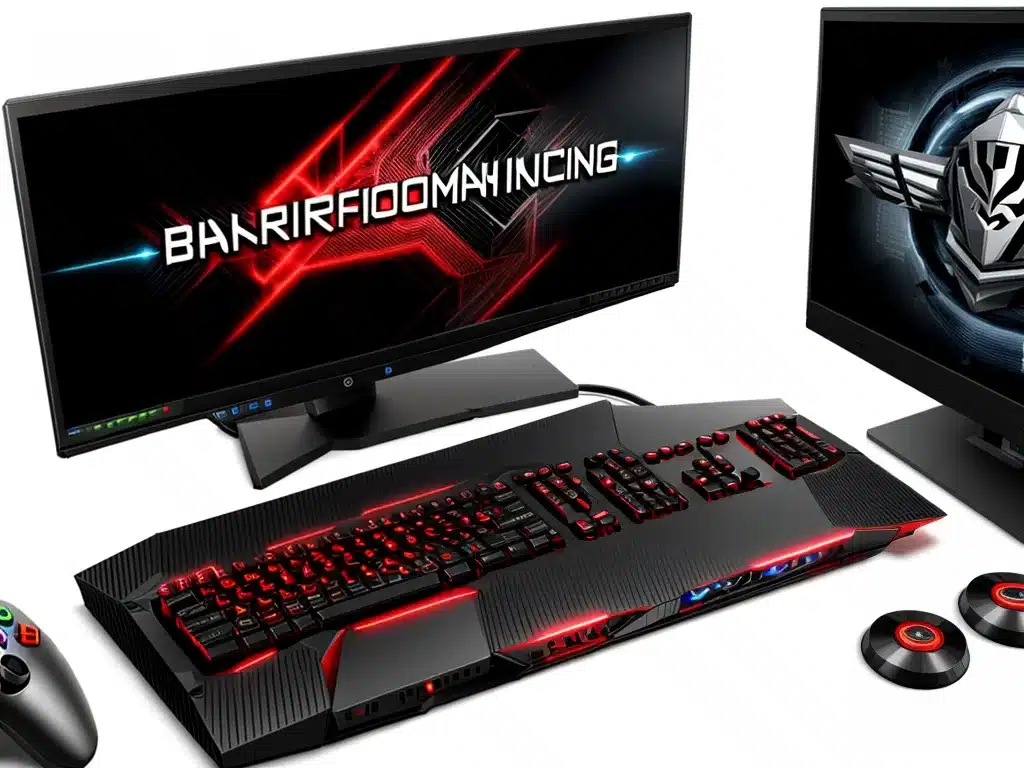
Benchmarking graphics processing unit (GPU) performance is crucial for gamers and productivity users who want to understand how their GPU stacks up against others. This allows you to determine if an upgrade is worthwhile or if your current GPU still meets your needs. Here is an in-depth guide on benchmarking GPU performance for both gaming and productivity tasks.
Why Benchmarking GPU Performance Matters
There are a few key reasons why benchmarking GPU performance is important:
-
It helps compare GPUs to determine which is better for your specific needs. Not all GPUs are created equal, so benchmarks allow you to see real-world differences.
-
It lets you validate that your GPU meets the system requirements of new games or creative apps you want to run. Benchmarks show if your frame rates or export times will be acceptable.
-
Benchmarking over time can reveal performance degradation and alert you when an upgrade is required to maintain the experience you want.
-
Seeing benchmark results gives you insight for optimizing in-game settings or creative workflows to match your GPU’s capabilities.
-
It enables evaluating the impact of overclocking or other tuning methods to squeeze more performance out of your current GPU.
Overall, benchmarking provides the hard data and context needed to make informed decisions about GPU purchases and system optimizations.
How To Benchmark GPUs
There are a few steps involved in properly benchmarking a GPU:
-
Select relevant benchmarking software – Be sure to use a benchmark that stresses the aspects of GPU performance relevant to how you use your computer (see recommendations below).
-
Eliminate other system bottlenecks – Close background programs and disable CPU throttling to remove limits not related to the GPU.
-
Run the benchmark test – Let the full benchmark complete and note the average and peak performance metrics reported.
-
Compare results – Check your scores against results from other GPUs to see how yours compares. Also compare against your previous scores.
-
Retest as needed – Run benchmarks again after any changes to monitor performance differences.
Following this straightforward process will give you reliable data on your GPU’s capabilities.
Recommended Benchmarking Software
The best benchmark utilities to use depend on your specific use cases:
For Gaming
-
3DMark – Good for measuring overall gaming performance across different GPU load levels.
-
UNIGINE Superposition – Stresses the GPU with intensive graphics effects.
-
VRMark – Specialized benchmark with virtual reality gaming scenarios.
-
In-game benchmarks – Many new games have built-in benchmark modes for testing with real game assets and engines.
For Creative Workloads
-
Cinebench – Measures 3D scene rendering and CAD performance.
-
Blender Benchmark – Tests GPU accelerated ray-traced 3D rendering using Blender.
-
PugetBench for Premiere Pro – Video editing benchmark tailored for Premiere Pro.
-
OctaneBench – Ray-tracing benchmark focused on OctaneRender.
There are also general GPU benchmarks like Geekbench 5 Compute and Futuremark PCMark 10 that provide high-level GPU performance analysis across gaming and workstation usage models.
Comparing Benchmark Results
Once you have benchmark scores from your GPU and reference scores from others, you can start making performance comparisons. Here are some tips:
-
Pay attention to both average and peak FPS scores for gaming. You want high averages but peak is also important for smooth gameplay.
-
Focus on render times for creative apps. Faster times equal better performance.
-
Look at relative percentage differences. A GPU that’s 15% faster is likely noticeable. 50%+ is a major difference.
-
Remember that real-world use can differ from theoretical benchmarks. But they provide a consistent way to compare hardware potential.
-
Check reviews to see actual gaming experiences on specific GPUs since benchmarks alone don’t show the full gaming picture.
-
View historical benchmarks to gauge the performance improvement moving from an older to a newer GPU generation.
Thoroughly examining benchmark results ensures you make informed decisions when purchasing or optimizing GPUs.
Overclocking Your GPU
If benchmarking shows your GPU is underperforming or you want to push it further, overclocking may help extract additional performance. Some tips:
-
Gradually increase GPU core and memory clock speeds in small increments using software like MSI Afterburner.
-
Run benchmarks repeatedly to check if scores improve without artifacts or crashing indicating instability.
-
Monitor temperatures closely. Higher clocks may require increased fan speeds and power limits.
-
Reduce memory clocks if only core clocks are unstable as cores often overclock higher.
-
Increase voltages sparingly if needed for stability. This adds heat and power draw.
-
Always revert back to default if overclocking becomes unstable or thermals get uncomfortably high.
With patience, overclocking can increase GPU benchmarks by 5-15%. But it takes testing and tuning to find the limits.
When To Upgrade Your GPU
If benchmarking reveals your GPU is no longer performing as needed, it may be time for an upgrade. Some signs include:
-
Game framerates are too low at target settings.
-
Creative apps take painfully long to render or export.
-
GPU is constantly at 100% usage even at lower settings.
-
Overclocking cannot achieve desired performance boost.
-
Newer GPUs show significant benchmark improvements over yours.
Upgrading to a new modern GPU like Nvidia RTX 3000 or AMD RX 6000 series can provide major performance and feature improvements. Just be sure your other system components don’t bottleneck the new GPU.
Summary
Benchmarking GPUs is important for both gamers and creative professionals to understand performance capabilities and make upgrade decisions. Use gaming and productivity-specific benchmarks to test real-world speeds. Compare scores against other GPUs to see where yours fits in the market. If performance is lacking, overclocking may help. But when benchmarks demonstrate it is time, upgrading to a newer higher-end GPU can provide substantial improvements to take your gaming and work to the next level.












